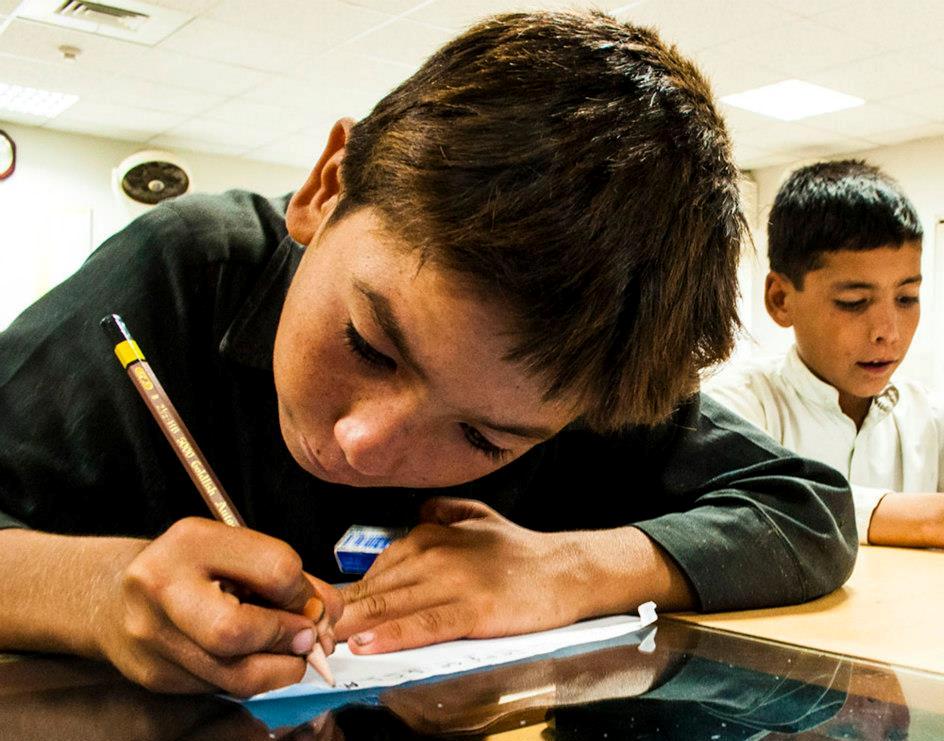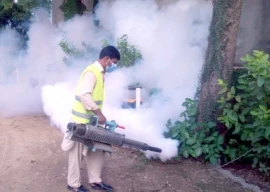
A few years ago, Sarah Adeel was reading the famous children’s book “The Little Prince” to a group of six-year-olds. Coming to a passage where one of the characters, a fox, tells the little prince it cannot play with him because it is not “tamed”, she had an epiphany.
At that time, Adeel was a Fulbright scholar at the Rhode Island School of Design. For her thesis, she “tried to explore family and community structures in relation to the design of orphanages, examining how a prosperous social structure takes physical form through design.”
Her thesis research, which focused on the impact of built environment on underprivileged children, brought her back to Pakistan to map child welfare systems during the course of her studies. As part of the research, she interacted with street children in Islamabad and got to know them. She still did not know how exactly she could help them though.
That is, until the next passage by Antoine de Saint-Exupéry made everything clear in her mind.
“What does it mean —’tame’?” The prince asks several times before the fox replies, “It means to establish ties.”
And Adeel knew, right then — she had to establish ties.
“During my one-on-one interactions with the children, I realised that the crux of the problem lies in the simple truth that these children fail to establish ties, have no sense of belonging and are unfamiliar with the terms bonding, home, family, connections,” Adeel told The Express Tribune.

She decided to change that. After completing her studies, she returned to Islamabad in 2009 and started LettuceBee Kids (LBK), a self-sustaining project that aims to reintegrate street children into society through art and music-based learning programmes.
Most child-welfare systems are not sustainable as they are dependent on donor funding or philanthropy, Adeel said. And most such organisations focus on the physical aspects such as food and shelter, but not on the psychological, emotional and intellectual growth of the street children.
But the LBK project is based on four guiding principles — arts and crafts, relationship with nature, importance of music and respect of elders.
“The aim of LBK’s four points is to help these children establish ties. Ties with each other, with the place they live and especially with the society in general,” Adeel said.
LBK has pre-piloted its programmes with a group of 50 street children from sectors F-7 and F-11 and successfully finished two initiatives so far — LettuceBee Design and LettuceBee Literate.
In the design programme, sponsored through a $5,000 US State Department Alumni Small Grant, LBK staff and volunteers from the community, including designers and child experts, taught the children to draw so they could express themselves through art.
“The goal of the activity was to bring these children back into society’s conscience and find out more about them and their problems,” Adeel said.

The artwork created by the children was turned into a line of greeting cards called BeeGreets, which was sold around the world through LBK’s 38 goodwill ambassadors, Adeel said. The revenues are put back into the project to create a self-sustaining model.
For the LBK Literate, Bahria University lent LBK its lab facility, which in turn was used to give them access to the world-renowned Khan Academy online courses.
Adeel is the brains behind the central idea, artwork and product development of LBK, but she has also come up with a volunteer-based team equipped with the skills to turn LBK into a self-sustaining organisation.
The project’s chief operating officer, Jabbar Bangash, has a Master’s In Project Management from Carleton University in Canada, and Mohsin Ali Afzal, another Fulbright alum who helps the team in business and marketing, has a Master’s in Business Administration from University of California-Berkeley.
But the journey has not been without challenges.
Discouragement from doubters, Adeel said, was a high hurdle she and the team faced in making LBK a reality. Then there was earning the trust of the children and their families.
“Ensuring that they are willing and able to join weekly sessions despite the opportunity cost of the lost daily income and keeping children interested is also a big challenge,” she said.
The biggest challenge though, is the absence of a physical space.
“To date, we are depending on public parks and borrowed venues to implement activities,” Adeel said. “Moreover, we need a permanent place from which we can initiate a large number of activities and where the kids can come find us.”
The team’s future plan is to acquire a physical space that will “serve as a special facility working with registered street children in order to provide them with maximum social inclusion.”
It will be located centrally so children working in crowded marketplaces can easily access the centre, Adeel said.
LBK also plans to start a LettuceBee Deli, which will serve as a community kitchen for the children, volunteers and visitors, and keep the internal income stream going. Adopt-a-grandparent programme is also planned to involve the local community in the upbringing of the children.
Notebooks, t-shirts, eco-friendly bags and other life-style products are currently being developed, Adeel said, and an exhibition of the children’s artwork is planned for February.
“But above all, the behavioural transformation of the children has been our proudest achievement so far,” she said.
Further ahead in the book, the fox’s warns the prince, “You become responsible, forever, for what you have tamed.”
Hearing Adeel say that she wants to help them because they help her achieve the only thing “that can subjectively be termed as ‘happiness, or a life with a purpose’” the children can be sure she will live up to the responsibilities.
Published in The Express Tribune, January 22nd, 2013.



1727791471-0/Joel-Kim-Booster-(1)1727791471-0-165x106.webp)













COMMENTS
Comments are moderated and generally will be posted if they are on-topic and not abusive.
For more information, please see our Comments FAQ